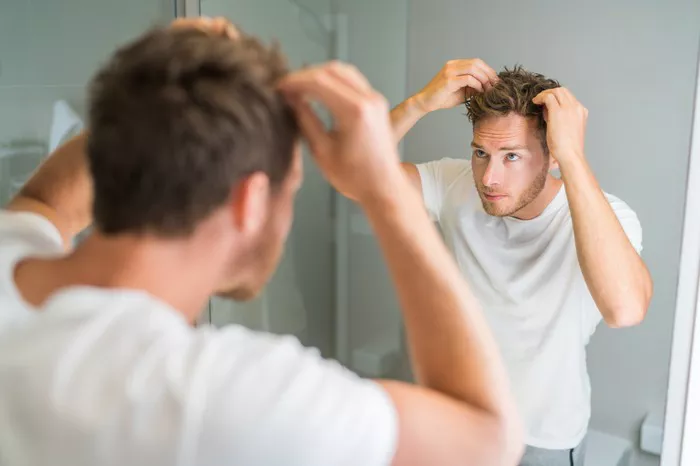The connection between lifestyle choices and hair health has long been a subject of curiosity and concern. Among the many factors speculated to influence hair loss, the timing of sleep, particularly late-night sleep, has garnered attention. In this article, we will explore the relationship between sleeping late at night and hair loss, separating fact from fiction and delving into the scientific insights surrounding this popular belief.
Understanding the Hair Growth Cycle: A Complex Interplay
The Intricacies of Hair Growth: Hair growth follows a cyclic pattern comprising anagen (growth), catagen (transition), and telogen (rest) phases. Understanding the nuances of this cycle is crucial for unraveling the impact of various factors on hair health.
Daily Rhythms and Circadian Influences: The body’s internal clock, known as the circadian rhythm, regulates various physiological processes, including hormone secretion and cellular repair. Disruptions to this rhythm have been implicated in diverse health issues.
The Circadian Rhythm and Hair Growth: Dispelling the Myth
The Role of Sleep in Cellular Repair: Adequate and quality sleep is essential for the body’s cellular repair processes. During sleep, the body releases growth hormone, supporting tissue repair and regeneration, including the hair follicles.
Sleep Quality vs. Sleep Timing: While the quality of sleep is paramount for overall health, the timing of sleep—whether it occurs late at night or during traditional nighttime hours—may have less impact on hair health than previously believed.
The Impact of Sleep on Hormones: A Critical Factor
Hormonal Fluctuations and Hair Health: Hormones, including cortisol and melatonin, play a crucial role in regulating the hair growth cycle. Disturbances in hormonal balance can contribute to hair loss.
Cortisol and Stress: Elevated cortisol levels, often associated with stress, can disrupt the hair growth cycle and lead to conditions like telogen effluvium, where hair prematurely enters the resting phase and sheds.
Lifestyle Factors Beyond Sleep: Addressing the Root Causes
Stress Management: Chronic stress, irrespective of sleep timing, remains a significant contributor to hair loss. Incorporating stress management techniques into one’s routine, such as mindfulness and relaxation exercises, can positively impact hair health.
Nutrition and Hydration: A well-balanced diet rich in vitamins and minerals is crucial for healthy hair. Ensuring proper hydration also supports overall hair health.
Regular Exercise: Physical activity promotes circulation, which is beneficial for delivering nutrients to the hair follicles. Regular exercise contributes to overall well-being, potentially impacting hair health positively.
Debunking the Late-Night Sleep Myth: Scientific Perspectives
Lack of Direct Evidence: While sleep quality and overall health are undoubtedly linked, there is a lack of direct scientific evidence supporting the notion that sleeping late at night directly causes hair loss. Individual experiences may vary.
Genetic and Environmental Factors: Genetic predisposition and environmental factors often play a more substantial role in hair loss than sleep timing. Understanding one’s family history and addressing environmental triggers is key.
Promoting Healthy Sleep Habits: Practical Strategies
Consistent Sleep Schedule: Maintaining a consistent sleep schedule, regardless of the specific timing, is essential for supporting the circadian rhythm. Going to bed and waking up at the same time daily can promote overall well-being.
Optimizing Sleep Environment: Creating a conducive sleep environment—dark, quiet, and cool—contributes to better sleep quality. Minimizing screen time before bedtime can also improve sleep.
Conclusion
The belief that sleeping late at night directly causes hair loss is a common misconception. While sleep quality remains crucial for overall health, the specific timing of sleep may have less impact on hair health than previously thought. The complex interplay of genetic factors, hormonal regulation, and overall lifestyle choices contributes more significantly to the health of our hair. Individuals concerned about hair loss should prioritize stress management, a balanced diet, and other lifestyle factors while maintaining good sleep habits. Dispelling myths and focusing on evidence-based practices ensures a holistic approach to hair health that goes beyond the ticking of the clock.

